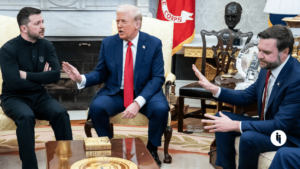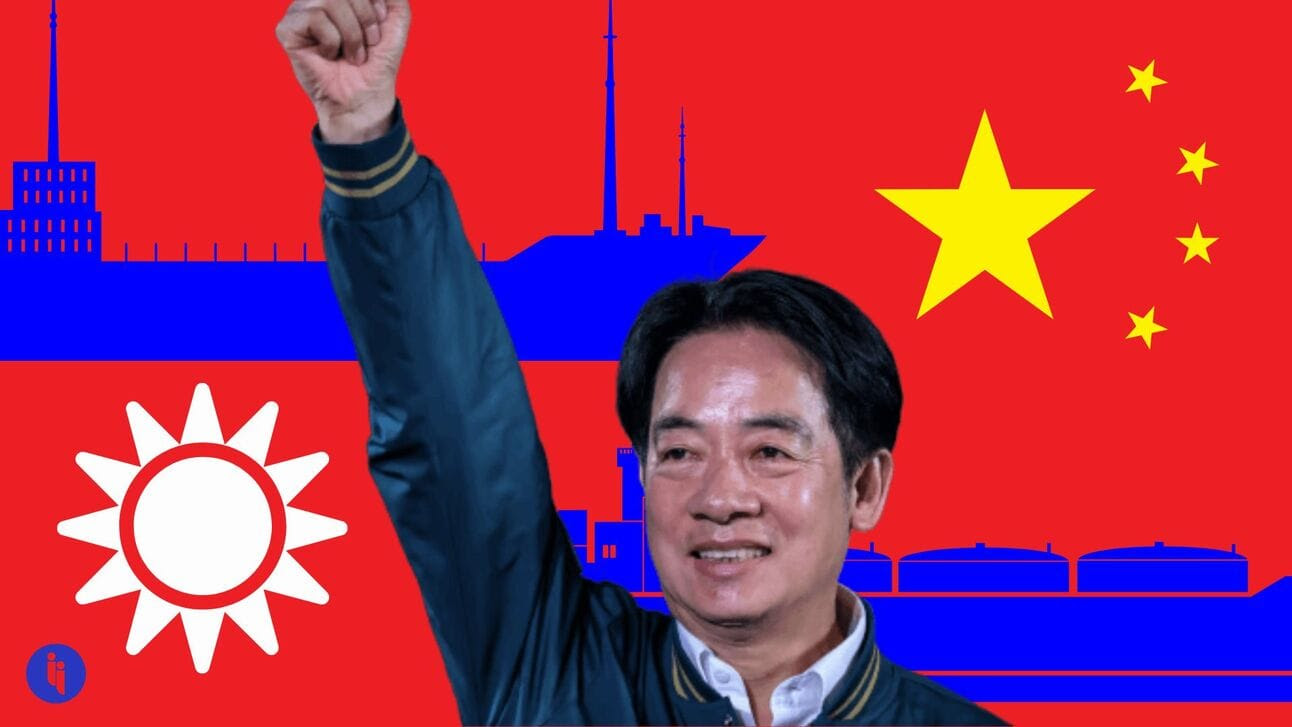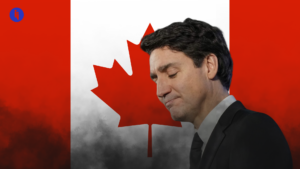China has held two days of mock drills surrounding Taiwan as “punishment” for “separatist acts”, after Taiwan inaugurated its new president on Monday.
The People’s Liberation Army (PLA) launched the exercise yesterday (Thursday) with a focus on surrounding Taiwan’s main island, but also Taiwan’s smaller islands of Kinmen, Matsu, Wuqiu and Dongyin, closer to China’s coastline.
Interestingly, the drills also targeted Taiwan’s east coast towards Japan, a presumed access point for Taiwan’s allies in any future war. According to Beijing’s statements, the exercises were designed to simulate a full-scale invasion.
Stay on top of your world from inside your inbox.
Subscribe for free today and receive way much more insights.
Trusted by 122,000+ subscribers
No spam. No noise. Unsubscribe any time.
Why?
Beijing views Taiwan as a renegade province, based on China’s patchy rule of the island for two centuries until 1895, as well as the 1949 retreat there by defeated nationalist forces after China’s civil war. Beijing also sees Taiwan’s location and Western-alignment as a vulnerability.
So then, why run these drills now?
Taiwan’s new president, Lai Ching-te, took office on Monday in the island’s first presidential transition since 2016. He’s stepping up after a stint as VP, and he hails from the same independence-leaning Democratic Progressive Party (DPP) as his predecessor and former boss (Tsai). To Beijing, they’re both separatists.
And while Lai used his inauguration speech to signal continuity with his predecessor, he also warned that, “in the face of the many threats and attempts of infiltration from China, we must demonstrate our resolution to defend our nation.”
Interestingly, he delivered that speech against a tumultuous local backdrop: Taiwan’s more China-friendly opposition (the Kuomintang, or KMT) still controls the legislature and is pushing a controversial bill to curtail the president’s powers.
So protests against that bill have now broken out in the streets of Taipei, in scenes that Beijing has previously described as separatist.
So what’s China’s aim here?
President Xi Jinping has placed the “Taiwan question” and “complete reunification” at the centre of his legacy. And as with any pledge, he’ll want to show progress, so he’s gradually upping the ante on Taiwan – a presidential transition in Taipei, with strong rhetoric from Lai, presents an ideal excuse.
In seizing the moment, Xi is seeking to build on precedents he set with drills after US Speaker Pelosi’s 2022 visit to Taiwan, and US Speaker McCarthy’s 2023 meeting with Tsai. That gets us to 2024, with China now running weekly drills, patrolling Taiwan’s Kinmen islands, and floating spy balloons (remember those?) over Taiwan.
Helpfully, China’s foreign ministry spelled it all out for us yesterday (Thursday), saying “each time ‘Taiwan independence’ separatists make waves, it garners stronger effort from China”. The same day, a senior US general spelled it out another way: it’s “the normalisation of abnormal action”.
Either way, it puts pressure on Taiwan and warns its allies to respect and accept Beijing’s own vision for Taiwan.
INTRIGUE’S TAKE
It’s hard to know how best to respond to all this. Indeed, that’s kinda the point. But if Xi’s aim is normalisation, then the world’s reactions seem to be, well, pretty normal: the US has described China’s drills as “concerning but expected”, while the EU has said “all parties should exercise restraint”. 🔥🔥
So then, is this all becoming a new kind of ritual, like Mao shelling Taiwan’s Kinmen Islands at the exact same time every other day for 21 years? Or is Xi looking to erode the West’s ability to distinguish a rehearsal from the real thing?
To us, his immediate aim still looks more performative at this stage. And Taiwan is seizing the moment in its own way, “vigorously gathering intelligence” on China’s simulated invasion, while rolling out its own new anti-ship missile batteries.
As for President Lai? With protests on the streets and the PLA’s navy circling offshore, it’s been a heck of a first week on the job.
Also worth noting:
- Taiwan’s new vice-president, Hsiao Bi-khim, served previously as Taiwan’s representative to the US in Washington.









